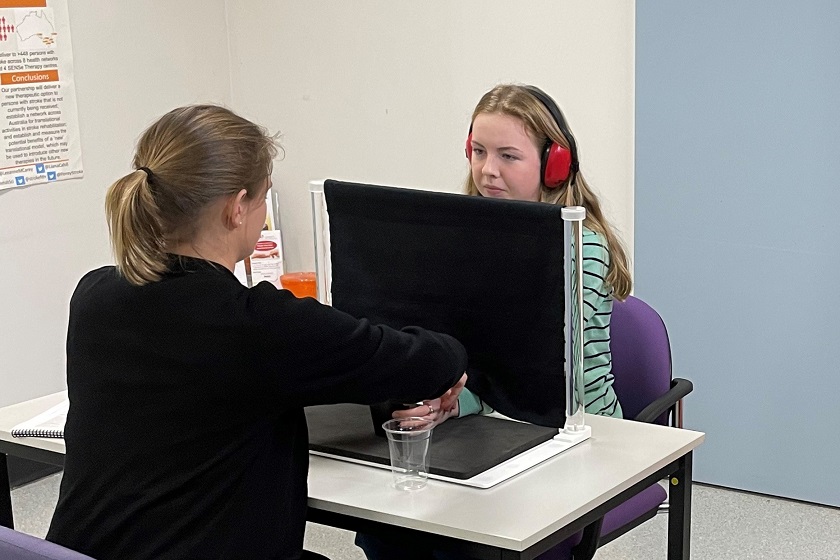 Ava Cole takes part in SENSe therapy as part of a new program for stroke survivors.
Ava Cole takes part in SENSe therapy as part of a new program for stroke survivors.
Developed by researchers at La Trobe University in Melbourne, SENSe therapy (Study of the Effectiveness of Neurorehabilitation on Sensation) has already helped hundreds of stroke survivors improve their ability to undertake tasks such as cooking, eating and driving.
A unique partnership program launched recently involves universities and healthcare providers across Victoria, New South Wales and South Australia, and 100 newly upskilled health professionals and will see the therapy extend to thousands more patients.
Bendigo Health is one of eight healthcare networks to provide SENSe therapy as part of the partnership.
Program lead, Professor Leeanne Carey from La Trobe University, said although one in two people – or more than 200,000 Australians at any time – experience a loss of touch sensation after stroke, it’s largely a hidden problem.
“We may take touch sensation for granted but for someone to suddenly not have this skill can erode confidence, independence and the ability to live a full and happy life,” Professor Carey said.
Making SENSe therapy more widely available is critical to enabling survivors of stroke to regain use of their hand in daily activities and improve quality of life, she said.
SENSe therapy exploits the brain’s capacity to adapt and learn new skills. Researchers now know that brain is plastic. It can change its function, even in adults who have had an injury to the brain such as stroke.
Professor Carey said most survivors of stroke who have been through the six-week program say the therapy has changed their life.
“SENSe therapy helps to reprogram the brain so that people again know when they are touching objects, can recognise textures, and know where their hand is in space,” Professor Carey said.
“We now have four specialist SENSe therapy centres in Melbourne, Adelaide and Newcastle and a further 100 physiotherapists and occupational therapists upskilled to roll the therapy out across eight healthcare networks in Victoria and NSW."